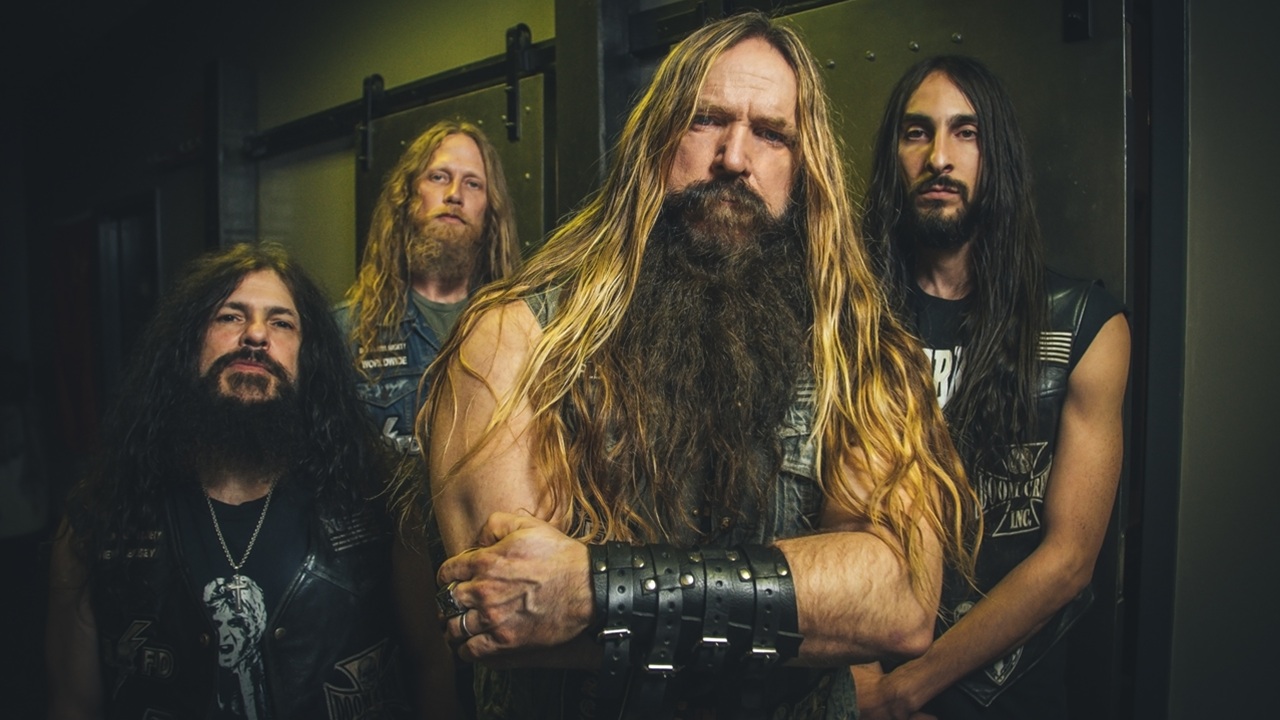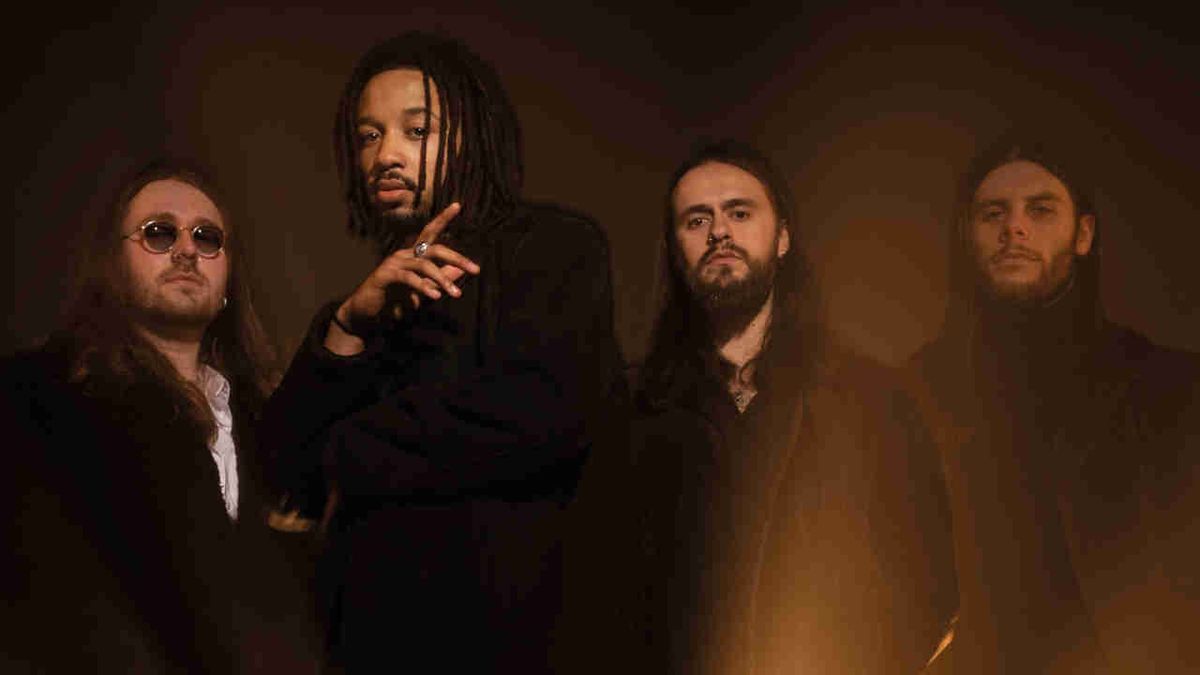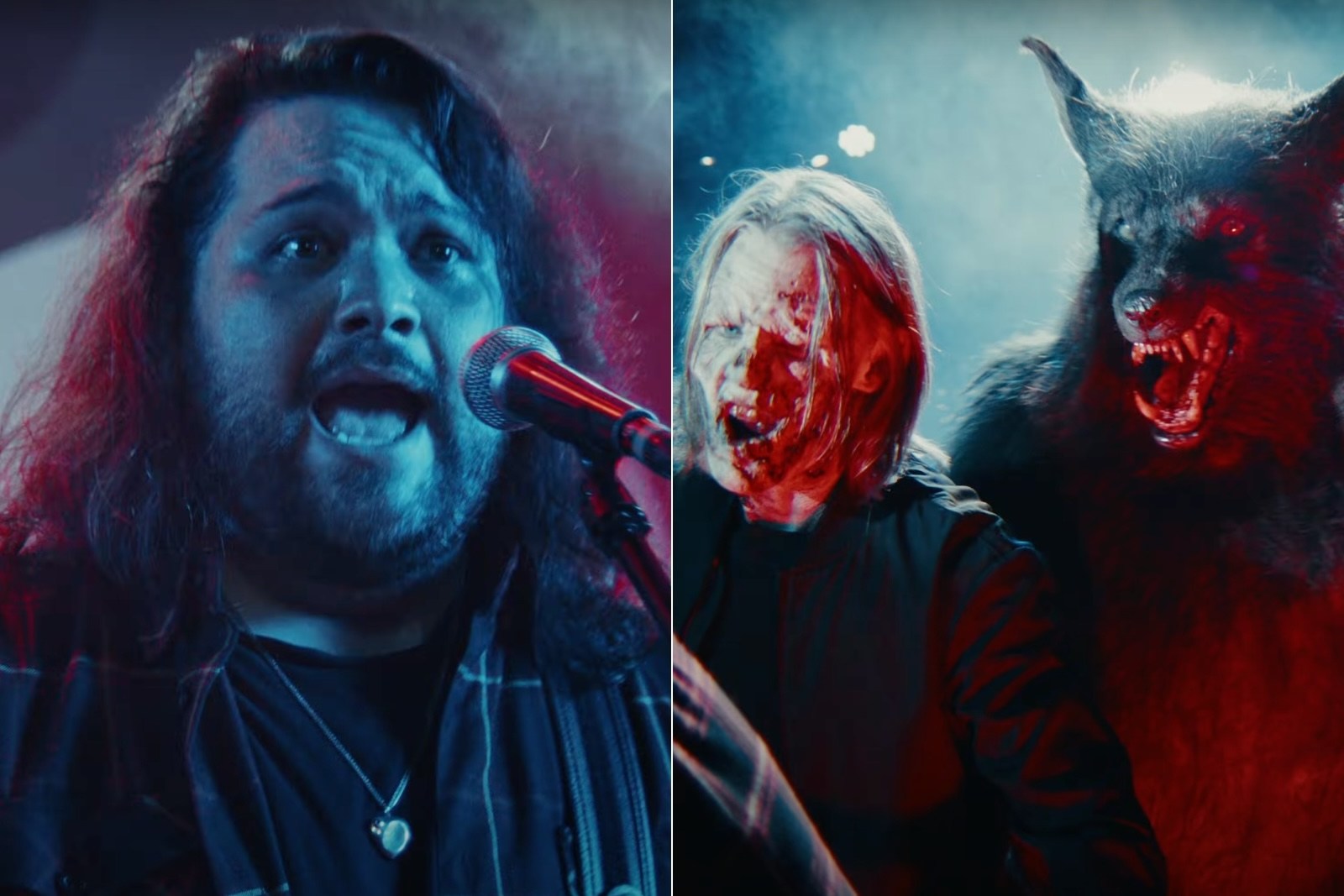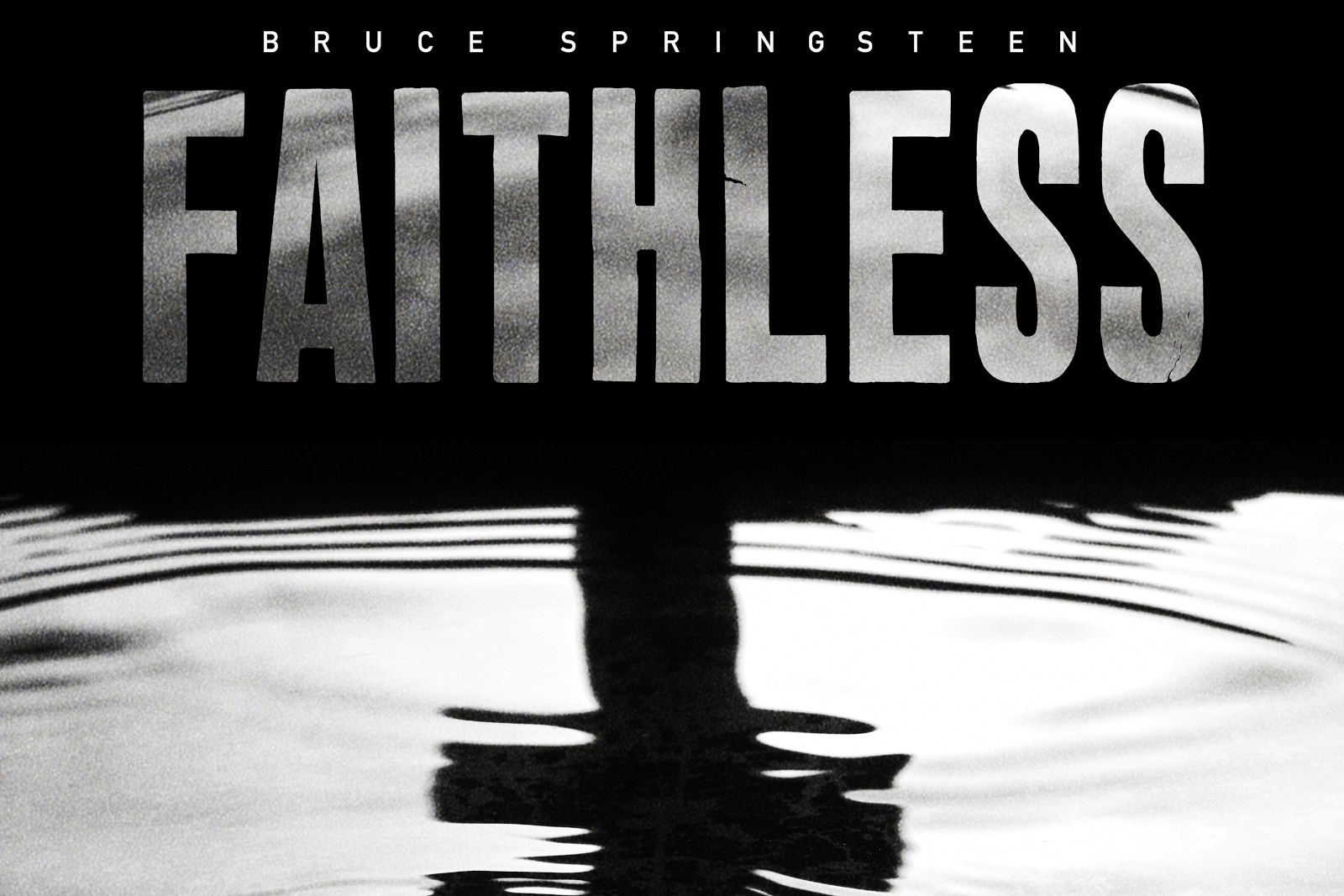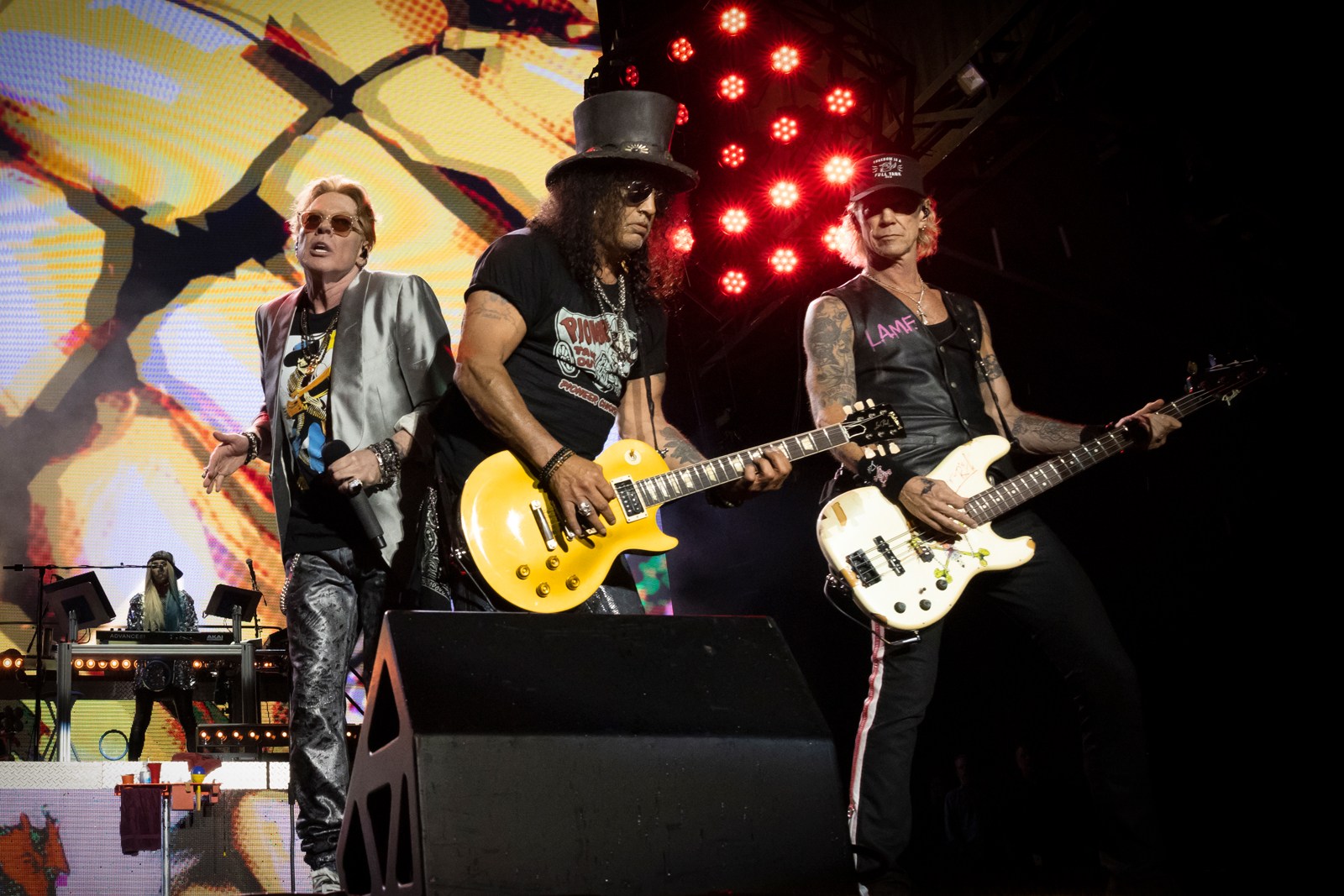
Feature Photo: albes83, CC BY-SA 2.0
Rising out of Orlando in 2004, Alter Bridge was built by musicians who weren’t ready to stop making music together. Guitarist Mark Tremonti, drummer Scott Phillips, and bassist Brian Marshall had all been part of Creed, a band that saw massive success but eventually fractured under pressure. The trio knew they had more to say, and they found the missing piece in Myles Kennedy, a skilled vocalist and guitarist who had previously fronted The Mayfield Four. With Kennedy onboard, Alter Bridge was born — not as a continuation of what came before, but as an entirely new voice, formed with purpose and clarity. Their name, inspired by an actual bridge near Tremonti’s childhood home in Detroit, symbolized the transition they were about to make: crossing over into territory that was both musically daring and emotionally unflinching.
Alter Bridge wasted no time getting into the studio. Their debut album, One Day Remains, was released in August 2004 through Wind-up Records. Though Kennedy had just joined the band, the majority of the songs were written prior to his arrival, with Tremonti handling most of the songwriting duties. That didn’t stop the album from hitting hard — it reached number five on the Billboard 200 and eventually earned gold certification. Tracks like “Open Your Eyes,” “Find the Real,” and “Broken Wings” announced the band with clarity, blending heavy instrumentation with a melodic core that became a hallmark of their sound. It was a clear break from their past affiliations and a confident step into a new creative identity.
With their second album, Blackbird, released in 2007 through Universal Republic, the band came into full bloom. It marked the first time Tremonti and Kennedy collaborated fully as songwriters, and the result was a cohesive and emotionally rich body of work that pushed their sound forward. The title track, “Blackbird,” became one of their most beloved and enduring songs, featuring a dual guitar solo that Guitarist magazine readers would later vote the greatest of all time in 2011. The album didn’t chase commercial trends — it chased something deeper, and that pursuit of sincerity and musicianship began to define Alter Bridge’s legacy.
In 2010, the band released AB III, a record that darkened their sound and explored far more introspective lyrical terrain. Themes of spiritual doubt, isolation, and existential reflection ran through the album, giving it a raw and haunted quality that stood apart from their earlier work. The single “Isolation” became a milestone, climbing to the top of the Billboard Mainstream Rock chart — their first number one on that chart. AB III was a declaration that the band wasn’t afraid to take risks, even if it meant going into heavier, more emotionally intense places than before.
Three years later, Fortress arrived in 2013 with a clear sense of urgency and innovation. The album was more progressive, technically daring, and ambitious. Kennedy and Tremonti pushed each other creatively, delivering tracks like “Addicted to Pain” and “Cry of Achilles” that showcased their intricate guitar work and dynamic songwriting. The critical response was overwhelmingly positive, with reviewers praising the album’s complexity and emotional weight. The band had evolved without shedding their identity — they were sharpening it.
The Last Hero, released in 2016, saw Alter Bridge leaning into the political climate of the time, though never in a heavy-handed way. It was a call for accountability in leadership, and a reflection on the disillusionment many fans felt with the state of the world. Songs like “Show Me a Leader” tapped into that unrest. The album maintained their signature sound while charging it with timely urgency, proving they could engage with current events without compromising their artistic integrity.
Their sixth studio release, Walk the Sky, arrived in 2019 with a slightly different edge. It incorporated electronic textures and synth elements into their otherwise guitar-driven palette, expanding the band’s sonic range while preserving their core identity. Songs like “Wouldn’t You Rather” and “Pay No Mind” showed that evolution doesn’t mean abandoning roots — it means building on them. The album debuted at number one on the Billboard Top Current Albums chart, reinforcing that Alter Bridge remained a commercial force as well as a critical one.
In 2022, the band returned with Pawns & Kings, an album that reaffirmed their place in modern rock with lyrical depth and instrumental mastery. The title track’s solo earned accolades from Guitar World readers, a reminder that Tremonti remains one of the most respected players in the business. But this band has never been about one person — it’s about the collective drive to make music that matters. Over nearly two decades, Alter Bridge has built a career on hard truths, technical brilliance, and unwavering commitment to authenticity. Their music speaks to resilience, reflection, and the courage to cross bridges most artists are too afraid to approach.
Complete List Of Alter Bridge Songs From A to Z
- Addicted to Pain – Fortress – 2013
- All Ends Well – Fortress – 2013
- All Hope Is Gone – AB III – 2010
- Before Tomorrow Comes – Blackbird – 2007
- Bitter End, The – Walk the Sky – 2019
- Blackbird – Blackbird – 2007
- Bleed It Dry – Fortress – 2013
- Brand New Start – Blackbird – 2007
- Break Me Down – Blackbird – 2007
- Breathe [Bonus Track] – The Last Hero – 2016
- Breathe Again – AB III – 2010
- Broken Wings – One Day Remains – 2004
- Broken Wings (live) [Bonus Track] – One Day Remains – 2004
- Buried Alive – Blackbird – 2007
- Burn It Down – One Day Remains – 2004
- Burn it Down (live) [Bonus Track] – One Day Remains – 2004
- Calm the Fire – Fortress – 2013
- Clear Horizon – Walk the Sky – 2019
- Coeur d’Alene – AB III – 2010
- Come to Life – Blackbird – 2007
- Coming Home – Blackbird – 2007
- Cradle to the Grave – The Last Hero – 2016
- Crows on a Wire – The Last Hero – 2016
- Cry a River – Fortress – 2013
- Cry of Achilles – Fortress – 2013
- Damage Done, The [Bonus Track] – Blackbird – 2007
- Dead Among the Living – Pawns & Kings – 2022
- Down to My Last – One Day Remains – 2004
- Dying Light – Walk the Sky – 2019
- Dying Light (Live) [Bonus Track] – Walk the Sky 2.0 – 2019
- Fable of the Silent Son – Pawns & Kings – 2022
- Fallout – AB III – 2010
- Farther Than the Sun – Fortress – 2013
- Find the Real – One Day Remains – 2004
- Forever Falling – Walk the Sky – 2019
- Fortress – Fortress – 2013
- Ghost of Days Gone By – AB III – 2010
- Godspeed – Walk the Sky – 2019
- Godspeed (Live) [Bonus Track] – Walk the Sky 2.0 – 2019
- Holiday – Pawns & Kings – 2022
- Home [Bonus Track] – AB III – 2010
- Home [Bonus Track] – Fortress – 2013
- I Know It Hurts – AB III – 2010
- In Loving Memory – One Day Remains – 2004
- In the Deep – Walk the Sky – 2019
- In the Deep (Live) [Bonus Track] – Walk the Sky 2.0 – 2019
- Indoctrination – Walk the Sky – 2019
- Island of Fools – The Last Hero – 2016
- Isolation – AB III – 2010
- Last Hero, The – The Last Hero – 2016
- Last Man Standing – Pawns & Kings – 2022
- Last Rites [Bonus Track] – Walk the Sky 2.0 – 2019
- Life Must Go On – AB III – 2010
- Losing Patience – The Last Hero – 2016
- Lover – Fortress – 2013
- Make It Right – AB III – 2010
- Metalingus – One Day Remains – 2004
- Metalingus (live) [Bonus Track] – One Day Remains – 2004
- My Champion – The Last Hero – 2016
- Native Son – Walk the Sky – 2019
- Native Son (Live) [Bonus Track] – Walk the Sky 2.0 – 2019
- Never Born to Follow [Bonus Track] – AB III – 2010
- Never Say Die [Bonus Track] – Fortress – 2013
- New Way to Live [Bonus Track] – Blackbird – 2007
- One by One – Blackbird – 2007
- One Day Remains – One Day Remains – 2004
- One Day Remains (live) [Bonus Track] – One Day Remains – 2004
- One Life – Walk the Sky – 2019
- Open Your Eyes – One Day Remains – 2004
- Open Your Eyes (live) [Bonus Track] – One Day Remains – 2004
- Other Side, The – The Last Hero – 2016
- Pawns & Kings – Pawns & Kings – 2022
- Pay No Mind – Walk the Sky – 2019
- Pay No Mind (Live) [Bonus Track] – Walk the Sky 2.0 – 2019
- Peace Is Broken – Fortress – 2013
- Poison in Your Veins – The Last Hero – 2016
- Rise Today – Blackbird – 2007
- Save Me [Bonus Track] – One Day Remains – 2004
- Season of Promise – Pawns & Kings – 2022
- Shed My Skin – One Day Remains – 2004
- Show Me a Leader – The Last Hero – 2016
- Show Me a Sign – AB III – 2010
- Silver Tongue – Pawns & Kings – 2022
- Sin After Sin – Pawns & Kings – 2022
- Slip to the Void – AB III – 2010
- Stay – Pawns & Kings – 2022
- Still Remains – AB III – 2010
- Symphony of Agony [Bonus Track] – The Last Hero – 2016
- Take the Crown – Walk the Sky – 2019
- Tear Us Apart – Walk the Sky – 2019
- The End Is Here – One Day Remains – 2004
- The Uninvited – Fortress – 2013
- This Is War – Pawns & Kings – 2022
- This Side of Fate – The Last Hero – 2016
- Ties That Bind – Blackbird – 2007
- Twilight – The Last Hero – 2016
- Walking on the Sky – Walk the Sky – 2019
- Watch Over You – Blackbird – 2007
- Watch Your Words – One Day Remains – 2004
- Waters Rising – Fortress – 2013
- Wayward One – Blackbird – 2007
- We Don’t Care at All [Bonus Track] – Blackbird – 2007
- White Knuckles – Blackbird – 2007
- Wonderful Life – AB III – 2010
- Words Darker Than Their Wings – AB III – 2010
- Wouldn’t You Rather – Walk the Sky – 2019
- Wouldn’t You Rather (Live) [Bonus Track] – Walk the Sky 2.0 – 2019
- Writing on the Wall, The – The Last Hero – 2016
- You Will Be Remembered – The Last Hero – 2016
- Zero [Bonus Track] – AB III – 2010
- Zero [Bonus Track] – Fortress – 2013
Albums
One Day Remains (2004): 17 songs
Blackbird (2007): 16 songs (including 3 bonus tracks)
AB III (2010): 17 songs (including 3 bonus tracks)
Fortress (2013): 15 songs (including 3 bonus tracks)
The Last Hero (2016): 15 songs (including 2 bonus tracks)
Walk the Sky/Walk the Sky 2.0 (2019): 21 songs (including 7 bonus tracks)
Pawns & Kings (2022): 10 songs
Check out our fantastic and entertaining Alter Bridge articles, detailing in-depth the band’s albums, songs, band members, and more…all on ClassicRockHistory.com
Complete List Of Alter Bridge Band Members
Complete List Of Alter Bridge Albums And Discography
Top 10 Alter Bridge Songs
Read More: Artists’ Interviews Directory At ClassicRockHistory.com
Read More: Classic Rock Bands List And Directory

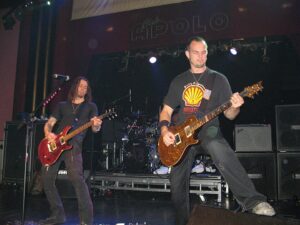










![Queen - Ogre Battle (Live at The Rainbow 1974) [HD 60fps] - YouTube](https://img.youtube.com/vi/87fzF1PKBC4/maxresdefault.jpg)

